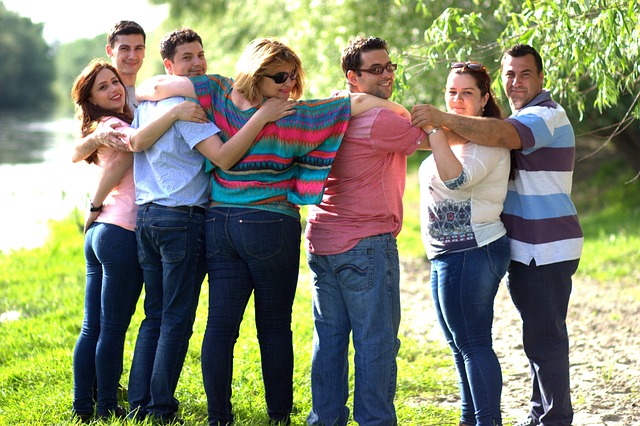Key Takeaways
- Understanding the basics of addiction and its impact can help you provide better support.
- Open communication and empathy are crucial in helping a loved one through their journey.
- Encouraging professional help and offering practical support can make a significant difference.
- Having boundaries and taking care of your own well-being is essential for both you and your loved one.
Introduction
Supporting a loved one struggling with addiction can be both challenging and emotionally draining. When Alcoholics Anonymous (AA) becomes a part of their journey, it is essential to understand how to offer the right kind of support. AA provides a structured environment for those battling addiction, often starting with a search for an AA Group Near Me. However, their journey to recovery often requires additional support from family and friends. Here are some practical ways to support a loved one struggling with addiction, with a focus on their involvement in AA.
Understand Addiction and Its Impact
To effectively support your loved one, it is crucial to educate yourself about addiction and its impact on their life. Addiction is a multifaceted illness that impacts the brain, behavior, and other elements of an individual’s health. The National Institute on Drug Abuse claims that addiction alters the anatomy and physiology of the brain, resulting in negative drug- and alcohol-related behaviors. Comprehending these alterations can facilitate your ability to relate to your dear one and provide more efficient assistance.
Additionally, understanding the role of AA in recovery is vital. AA is a peer-led support group that follows a 12-step program aimed at helping people achieve and maintain sobriety. Knowing how AA meetings work and the principles they follow can give you insight into your loved one’s journey and how best to support them.
Practice Open Communication and Empathy
Open and honest communication is the foundation of providing effective support. Establish a secure environment where your loved one can open up about their challenges and triumphs without worrying about being judged. Listen actively and show empathy by acknowledging their feelings and experiences.
Example Conversation Starters:
- “I’m here for you, and I want to understand what you’re going through.”
- “How can I support you in your journey with AA?”
- “I’m proud of the steps you’re taking to overcome your addiction.”
Always use patience and refrain from forcing a loved one to disclose something before they are ready. Encouraging them to share at their own pace can build trust and strengthen your relationship.
Encourage Professional Help
While AA meetings provide valuable support, professional help is often necessary for a comprehensive recovery plan. Encourage your loved one to seek professional treatment from counselors, therapists, or addiction specialists. Trauma or mental health conditions are examples of underlying problems that can be addressed by professional intervention and contribute to addiction.
Suggesting professional help can be a delicate conversation. Approach it with care, emphasizing your concern for their well-being and your desire to see them thrive. You might say, “I think it could be best to talk to a professional who can provide additional support alongside your AA meetings.”
Offer Practical Support
Your helpful assistance can have a big impact on how well your loved one recovers. Here are some ways to provide tangible assistance:
Help with Logistics:
- Offer to drive them to AA meetings or therapy appointments.
- Assist in finding local AA meetings or connecting with support networks.
- Help them manage their schedule to prioritize recovery activities.
Create a Sober Environment:
- Remove alcohol and temptations from the home.
- Plan social activities that do not involve alcohol.
Be an Accountability Partner:
- Check in regularly to see how they are doing and offer encouragement.
- Celebrate their milestones and progress.
Offering practical support shows your loved one that you are committed to their recovery and provides additional motivation for them to stay on track.
Set Boundaries and Take Care of Yourself
Being an addict’s supporter can be emotionally draining. It’s essential to set boundaries to protect your own well-being. Remember that you cannot “fix” their addiction; their recovery is ultimately their responsibility. Setting clear boundaries helps maintain a healthy balance in your relationship and prevents burnout.
Additionally, prioritize self-care. Take part in enjoyable and relaxing activities, ask friends and family for support, attend support groups for families of addicts, and think about seeing a therapist to help you deal with your feelings. Taking care of yourself ensures you’re in a better position to support your loved one.
Conclusion
It can be difficult yet rewarding to help a loved one who is battling addiction and participate in AA. By understanding addiction, practicing open communication and empathy, encouraging professional help, offering practical support, and setting boundaries, you can be a pillar of strength for your loved one. Recall that your assistance can have a big impact on their path to recovery and better health.

